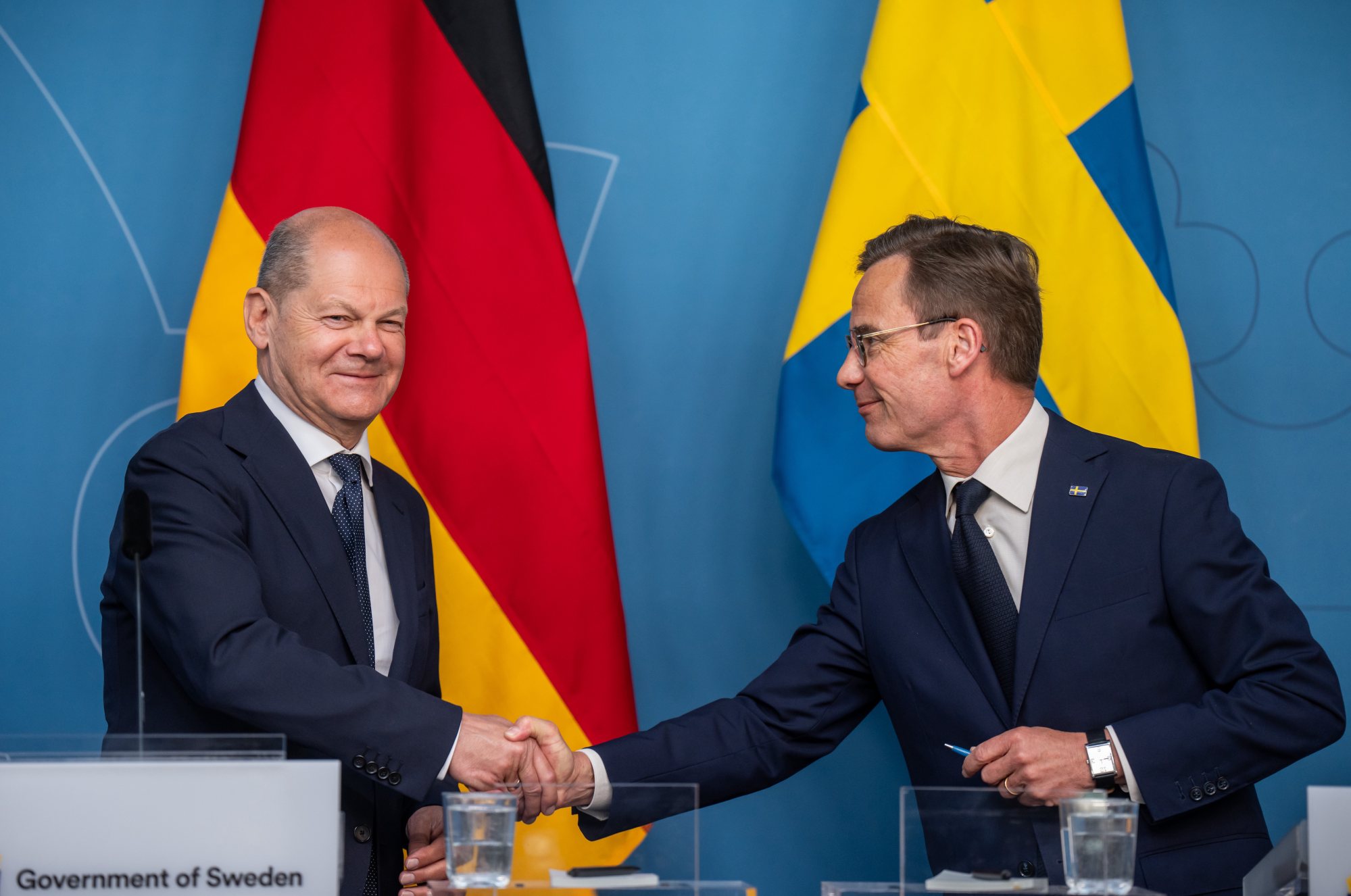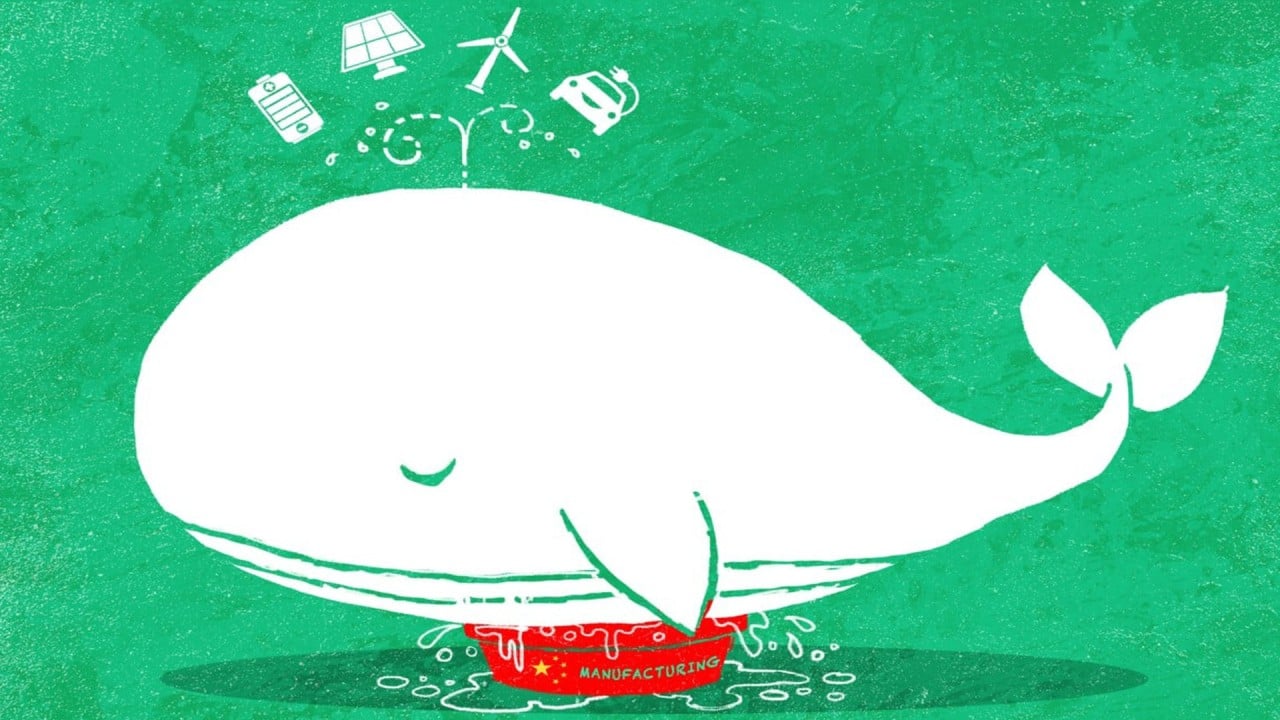EU feels heat from all sides as decision on Chinese EV duties looms
US President Joe Biden’s plan to impose 100 per cent import tariffs on made-in-China EVs is seen as a way to force Brussels to act, and also to give the commission a benchmark against which to calculate higher duties.
“I think this ramps up the pressure for the EU to put tariffs on Chinese EVs as well, in the higher part of the 20 to 60 per cent bracket,” said Rem Korteweg, an expert in trade and geopolitics at the Clingendael Institute, a Dutch think tank.
“It gives the EU cover to do so. Brussels can point at DC and say it is pursuing a coordinated approach.”
There was already a feeling in Brussels that an existing 27.5 per cent US tariff on Chinese EVs meant that Europe was their most logical export market.
Research from Rhodium Group last month found that the average EU anti-subsidy duty is 19 per cent, and the analysis posited that Brussels would need a duty of around 50 per cent to stop a deluge of Chinese EVs from arriving at its ports.
Some EU member states with big automotive ties to China, however, have been voicing their opposition to any push to match the United States, or to put tariffs on the imports at all.
“We don’t want to dismantle global trade, that’s a stupid idea,” Swedish Prime Minister Ulf Kristersson said this week, Politico reported. “Punitive tariffs as a one-size-fits-all solution is not a good idea for importing and exporting countries.”
Speaking at the same forum in Denmark, German Chancellor Olaf Scholz pointed out that “currently at least 50 per cent of imports of electric vehicles from China are from Western brands that produce there themselves and import them to Europe”.
The commission has the authority to put provisional duties on the imports without member state support. But these would have to eventually be voted on by capitals via qualified majority if they were to become permanent.
Commission sources said no decision had been made, and insisted that no pressure was being felt. The resistance from member states had been anticipated, and there is a prevailing sense that if Brussels backs down now, it would look weak in the eyes of Beijing.
“What does it achieve if we make all this noise and hype and then not do anything about it?” asked one senior official.
The Chinese government has been lobbying through various channels to kill the investigation, up to the highest level. The EV issue was on the agenda when Chinese leader Xi Jinping met French President Emmanuel Macron in Paris last week.

In an interview with Bloomberg this week, Macron reiterated his support for the probe.
“It’s not a geopolitical agenda, we don’t want to blackmail and push back some of the production, we want to be sure it’s fair. It’s fair to launch precisely inquiries and look in details at the situation and revise it. If we are weak, if we are threatened by the fact that you can have retortion measures, you just don’t do what you have to do,” Macron said.
While the presidents were enjoying wine and cheese in the Pyrenees on May 7, meanwhile, Xi dispatched a group of 12 economists to Brussels – led by ex-deputy managing director of the International Monetary Fund Zhu Min – for what sources described as a “real discussion” on the spat and other economic concerns with the cabinet of Valdis Dombrovskis, the EU’s trade chief.
In the eight months since the inquiry was initiated, it’s understood that Beijing has made several “political” offers to Brussels in a bid to end it. The commission’s response has always been that the investigation is technical in nature, sparked by China’s own subsidies, and so a political resolution is not up for grabs.
Some economists have warned that making EVs more expensive could set back the bloc’s climate objectives, and make it more economically uncompetitive.
“While there is a temptation to approach trade policy solely through the lens of trade defence to shield domestic industries, the EU must be careful to avoid slipping into protectionism,” said Emilie Kerstens, a Brussels-based researcher into green trade at the climate change think tank E3G.
“Unlike the US, the EU is much more dependent on trade with China. Engaging in a trade war undermines its climate ambitions as well as its own competitiveness.”
According to the Rhodium report, “EU imports of EVs from China ballooned from US$1.6 billion in 2020 to US$11.5 billion in 2023, accounting for 37 per cent of all EV imports in the bloc.”
“While the market share of China-produced EV models in the European market has only increased slightly to 19 per cent, the share of Chinese and Chinese-owned brands has increased substantially in the last two years.”

